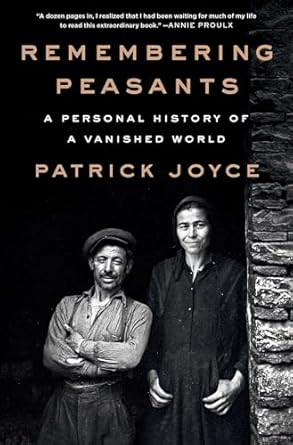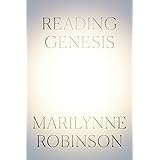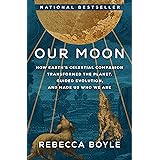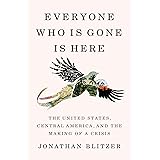
Enjoy fast, free delivery, exclusive deals, and award-winning movies & TV shows with Prime
Try Prime
and start saving today with fast, free delivery
Amazon Prime includes:
Fast, FREE Delivery is available to Prime members. To join, select "Try Amazon Prime and start saving today with Fast, FREE Delivery" below the Add to Cart button.
Amazon Prime members enjoy:- Cardmembers earn 5% Back at Amazon.com with a Prime Credit Card.
- Unlimited Free Two-Day Delivery
- Streaming of thousands of movies and TV shows with limited ads on Prime Video.
- A Kindle book to borrow for free each month - with no due dates
- Listen to over 2 million songs and hundreds of playlists
- Unlimited photo storage with anywhere access
Important: Your credit card will NOT be charged when you start your free trial or if you cancel during the trial period. If you're happy with Amazon Prime, do nothing. At the end of the free trial, your membership will automatically upgrade to a monthly membership.

Download the free Kindle app and start reading Kindle books instantly on your smartphone, tablet, or computer - no Kindle device required.
Read instantly on your browser with Kindle for Web.
Using your mobile phone camera - scan the code below and download the Kindle app.

OK
 Audible sample Sample
Audible sample Sample 


Remembering Peasants: A Personal History of a Vanished World Hardcover – February 20, 2024
Purchase options and add-ons
A landmark new history of the peasant experience, exploring a now neglected way of life that once encompassed most of humanity but is vanishing in our time.
“What the skeleton is to anatomy, the peasant is to history, its essential hidden support.” For over the past century and a half, and still more rapidly in the last seventy years, the world has become increasingly urban, and the peasant way of life—the dominant way of life for humanity since agriculture began well over 6,000 years ago—is disappearing. In this new history of peasantry, social historian Patrick Joyce aims to tell the story of this lost world and its people, and how we can commemorate their way of life. In one sense, this is a global history, ambitious in scope, taking us from the urbanization of the early 19th century to the present day. But more specifically, Joyce’s focus is the demise of the European peasantry and of their rites, traditions, and beliefs.
Alongside this he brings in stories of individuals as well as places, including his own family, and looks at how peasants and their ways of life have been memorialized in photographs, literature, and in museums. Joyce explores a people whose voice is vastly underrepresented in human history and is usually mediated through others. And now peasants are vanishing in one of the greatest historical transformations of our time.
Written with the skill and authority of a great historian, Remembering Peasants is a landmark work, a richly complex and passionate history written with exquisite care. It is also deeply resonant, as Joyce shines a light on people whose knowledge of the land is being irretrievably lost during our critical time of climate crisis and the rise of industrial agriculture. Enlightening, timely, and vitally important, this book commemorates an extraordinary culture whose impact on history—and the future—remains profoundly relevant.
- Print length400 pages
- LanguageEnglish
- PublisherScribner
- Publication dateFebruary 20, 2024
- Dimensions6 x 1 x 9 inches
- ISBN-101668031086
- ISBN-13978-1668031087
The Amazon Book Review
Book recommendations, author interviews, editors' picks, and more. Read it now.
Frequently bought together

Similar items that may ship from close to you
From the Publisher




Editorial Reviews
Review
“[A] moving and sensitive rumination... Joyce shows how the supreme value of the peasant is generational survival: The great task is to hand on to the child the land the peasant has inherited, making one’s own existence a kind of interlude between past and future. His beautifully written book is equally in-between, haunted by the ghosts of the dead but also full of the warmth of human sympathy.” —The New York Times Book Review
“In this elegiac history, Joyce presents a painstaking account of a way of life to which, until recently, the vast majority of humanity was bound... The relative absence of peasants from the historical record, and the blinding speed with which they seem to have disappeared, prompt a moving final essay on the urgency of preserving our collective past.” —The New Yorker
“Books such as Remembering Peasants are landmarks and waymarkers…This is important, vital writing and study. The level of craftsmanship in the book is evident, but so too is its heart and soul. Reading it, I was changed and charged... Joyce is essential reading for anyone who cares about our shared past. A profound book.” —The Irish Times
“Remembering Peasants is a work of salvage and salvation, a great rescuing of Europe’s earth-toilers from historical neglect and erasure…a heart-writ valediction …Joyce is a propitious name for a writer of Irish heritage, but the author is more Heaney than Dubliners; his prose is peat-rich, dense with feeling as well as fact.” —The Times
“Joyce takes us to some of the places Europeans have established to remember peasants …But the most poignant of all are journeys to his ancestral home in Ireland’s far west… As its title indicates, Joyce’s lament is also a call to remember. Well written, expansive and often deeply moving, this is a fitting monument to Europe’s peasants.” —The Financial Times
“…A devotional act…Joyce writes with a split consciousness, like a man recounting his dreams.” —Literary Review
“A first-class work combining social history and ethnohistory with an unerring sense for a good story.” —Kirkus (starred review)
“An insightful and evocative homage to the peasant way of life… Readers will be enthralled.” —Publishers Weekly (starred review)
“[Joyce] rages against the amnesia hardwired into today's 'all consuming' present... A loving and unconventional work of genealogy, and a melancholic elegy for bygone ways of being.” —Booklist
Praise for Patrick Joyce and Going to My Father’s House:
Observer Book of the Year 2021
“An immensely readable, thoroughly enjoyable book... Hegel would have admired the way Joyce lets a sharply individualised life distil a whole socal history.”
—Terry Eagleton, author of Why Marx was Right
“A haunting meditation on Ireland and England, war and migration, Derry and Manchester. I admired the originality of his observations and his tone of melancholy, calm wisdom.”
—Colm Tóibín, (Books of the Year 2021), Guardian
“This is a rare kind of writing, a form of meditation on the societies that are forming and melting around us in the present. Only a voice such as this can alert us to these historical worlds.”
—Seamus Deane
“I can't think of another historian around who could write something so suggestive and profound, so much on both a minor and major scale, constantly tracing the connections between the two.” —Paul Ginsborg
“Merges personal stories with large political moments. Joyce's family came to England from Mayo and Wexford. His account of his life in London, of the legacy of war and of his experiences in Ireland is written with wisdom and grace.”
—Colm Tóibín, (Authors' and Critics' 2021 Favourites), Irish Times
About the Author
Product details
- Publisher : Scribner (February 20, 2024)
- Language : English
- Hardcover : 400 pages
- ISBN-10 : 1668031086
- ISBN-13 : 978-1668031087
- Item Weight : 1.32 pounds
- Dimensions : 6 x 1 x 9 inches
- Best Sellers Rank: #58,869 in Books (See Top 100 in Books)
- #30 in Italian History (Books)
- #42 in French History (Books)
- #144 in History of Civilization & Culture
- Customer Reviews:
About the author

Patrick Joyce is Emeritus Professor of History at Manchester University, and one of the leading social historians of his generation. He has long been a radical and influential voice in debates on the politics and future of social and cultural history. Patrick has written and edited numerous academic books of social and political history, including The Rule of Freedom, Visions of the People, and The State of Freedom. He has held visiting professorships and fellowships at numerous places, including Trinity College Dublin, the University of California at Berkeley and San Diego, the LSE, and he has been a Braudel Fellow at the European University Institute in Florence.
In recent years I have moved away from academic writing to a new mode of writing which includes combines history, memoir, and photography. I have recently completed Remembering Peasants: A Personal History of a Vanished World. To be published by Allen Lane/The Penguin Press in the UK and Scribner/Simon and Schuster in the USA, February 2024. In the book I consider how peasants in advanced western societies are now being lost to memory after millenia of time as the dominant social group. This is a loss we all share. The writing invokes the Irish peasant past of my forbears but sets this in the context of the end of the European peasantry, west and east. Why should we remember, and how are peasants remembered now?
Review of Remembering Peasants: “A dozen pages in I realized that I had been waiting for much of my life to read this extraordinary book. Anyone who has ever tried to unravel the intertwined skeins of ancestry, sociology, music, geography and history will gape at Joyce’s skill. On almost every page the reader gets a jolt, a palpable sensation of immersion in the disappeared world of peasantry. A central part of the book is Joyce’s own family’s peasant past. I too, like many people, am only two generations and one language away from these ancestors. Because the time of the peasants is still palpable there are clues and messages here for every fortunate reader who picks up this book.” —Annie Proulx
Penguin book description, UK edition: In this new history of peasantry, Patrick Joyce tells the story of this lost world and its people. In contrast to the usual insulting stereotypes, we discover a rich and complex culture: traditions, songs, celebrations and revolts, across Europe from the plains of Poland to the farmsteads and villages of Italy and Ireland, through the nineteenth century to the present day. Into this passionate history, written with exquisite care, Joyce weaves remarkable individual stories, including those of his own Irish family, and looks at how peasant life has been remembered - and misremembered - in contemporary culture.
This is a people whose voice is vastly underrepresented in human history. Yet for Joyce, we are all the children of peasants, who must respect the experience of our ancestors. This is particularly pressing when our knowledge of the land is being lost to climate crisis and the rise of industrial agriculture. Enlightening, timely and vital, this book commemorates an extraordinary culture whose impact on our history and our future remains profoundly relevant.
Scribner Book description, US edition: “What the skeleton is to anatomy, the peasant is to history, its essential hidden support.” For over the past century and a half, and still more rapidly in the last seventy years, the world has become increasingly urban, and the peasant way of life—the dominant way of life for humanity since agriculture began well over 6,000 years ago—is disappearing. In this new history of peasantry, social historian Patrick Joyce aims to tell the story of this lost world and its people, and how we can commemorate their way of life. In one sense, this is a global history, ambitious in scope, taking us from the urbanization of the early 19th century to the present day. But more specifically, Joyce’s focus is the demise of the European peasantry and of their rites, traditions, and beliefs.
Alongside this he brings in stories of individuals as well as places, including his own family, and looks at how peasants and their ways of life have been memorialized in photographs, literature, and in museums. Joyce explores a people whose voice is vastly underrepresented in human history and is usually mediated through others. And now peasants are vanishing in one of the greatest historical transformations of our time.
Written with the skill and authority of a great historian, Remembering Peasants is a landmark work, a richly complex and passionate history written with exquisite care. It is also deeply resonant, as Joyce shines a light on people whose knowledge of the land is being irretrievably lost during our critical time of climate crisis and the rise of industrial agriculture. Enlightening, timely, and vitally important, this book commemorates an extraordinary culture whose impact on history—and the future—remains profoundly relevant.
Pre-publication reception of Remembering Peasants:
“A first-class work combining social history and ethnohistory with an unerring sense for a good story.” —Kirkus (starred review)
“An insightful and evocative homage to the peasant way of life… Readers will be enthralled.” —Publishers Weekly (starred review)
“[Joyce] rages against the amnesia hardwired into today's 'all consuming' present... A loving and unconventional work of genealogy, and a melancholic elegy for bygone ways of being.” —Booklist
In Spring 2021 my my Going to my Father’s House: A History of My Times was published by Verso.
Praise for Patrick Joyce and Going to My Father’s House:
“A haunting meditation on Ireland and England, war and migration, Derry and Manchester. I admired the originality of his observations and his tone of melancholy, calm wisdom.”
—Colm Tóibín, eminent writer (Observer Books of the Year 2021)
“An immensely readable, thoroughly enjoyable book... Hegel would have admired the way Joyce lets a sharply individualised life distil a whole social history.”
—Terry Eagleton, one of the most celebrated radical authors of our time
“This is a rare kind of writing, a form of meditation on the societies that are forming and melting around us in the present. Only a voice such as this can alert us to these historical worlds.”
—the late Seamus Deane, foremost Irish literary critic of his day, and author of Reading in the Dark
“I can't think of another historian around who could write something so suggestive and profound, so much on both a minor and major scale, constantly tracing the connections between the two.” —the late Paul Ginsborg, eminent historian
“Merges personal stories with large political moments. Joyce's family came to England from Mayo and Wexford. His account of his life in London, of the legacy of war and of his experiences in Ireland is written with wisdom and grace.”
—Colm Tóibín, (Authors' and Critics' 2021 Favourites), Irish Times
Customer reviews
Customer Reviews, including Product Star Ratings help customers to learn more about the product and decide whether it is the right product for them.
To calculate the overall star rating and percentage breakdown by star, we don’t use a simple average. Instead, our system considers things like how recent a review is and if the reviewer bought the item on Amazon. It also analyzed reviews to verify trustworthiness.
Learn more how customers reviews work on Amazon-
Top reviews



















